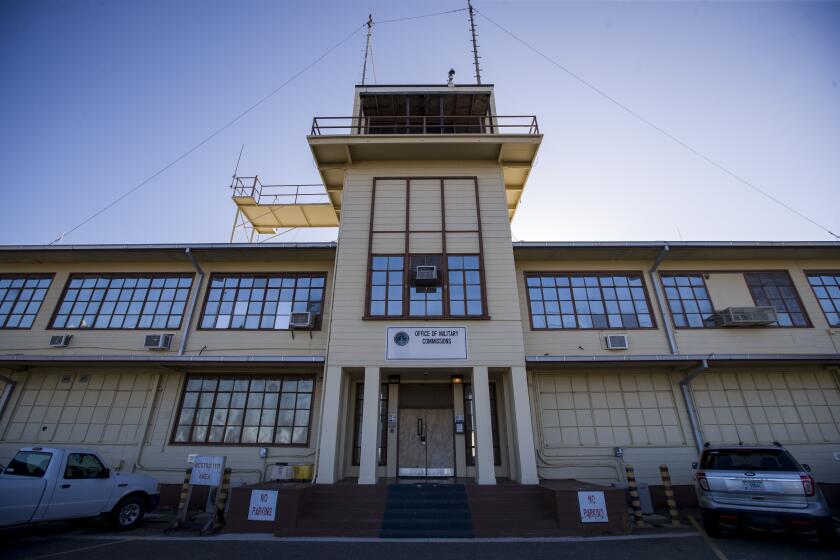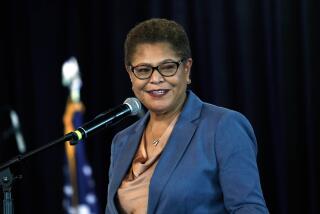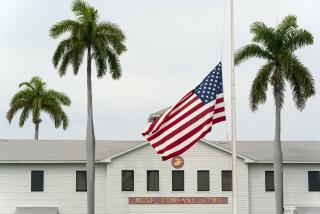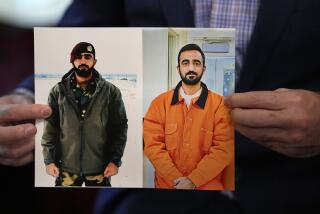Oldest Guantanamo prisoner is cleared for release, lawyer says
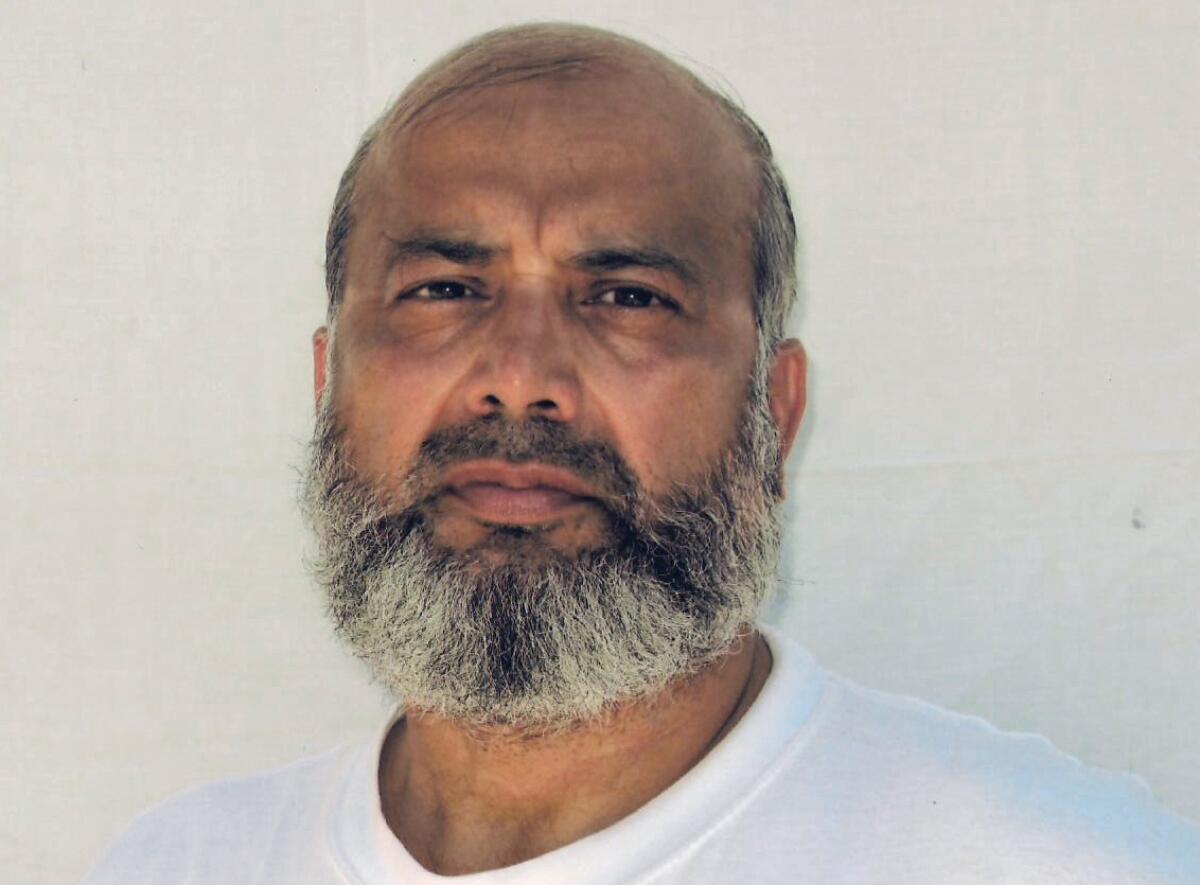
WASHINGTON — A 73-year-old from Pakistan who is the oldest prisoner at the Guantanamo Bay detention center was notified Monday that he has been approved for release after more than 16 years in custody at the U.S. base in Cuba, his lawyer said.
Saifullah Paracha, who has been held on suspicion of ties to Al Qaeda but never charged with a crime, was cleared by the prisoner review board along with two other men, said Shelby Sullivan-Bennis, who represented Paracha at his hearing in November.
As is customary, the notification did not provide detailed reasoning for the decision, concluding only that Paracha is “not a continuing threat” to the U.S., Sullivan-Bennis said.
It does not mean that his release is imminent. But it is a crucial step before the U.S. negotiates a repatriation agreement with Pakistan for his return. The Biden administration has said it intends to resume efforts to close the detention center, a process that former President Trump halted.
Paracha’s attorney said she thinks he will be returned home in the next several months. “The Pakistanis want him back, and our understanding is that there are no impediments to his return,” she said.
A Pentagon spokesman had no immediate comment.
The White House says President Joe Biden will seek to close the prison on the U.S. base at Guantanamo Bay following a review process.
The prisoner review board also informed Uthman Abd Rahim Uthman, a Yemeni who has been held without charge at Guantanamo since it opened in January 2002, that he had been cleared, according to his attorney, Beth Jacob, who spoke to him by phone.
“He was happy, relieved and hopeful that this will actually lead to his release,” Jacob said.
Paracha, who lived in the U.S. and owned property in New York, was a wealthy businessman in Pakistan. Authorities alleged he was a “facilitator” for Al Qaeda who helped two of the conspirators in the Sept. 11 plot with a financial transaction. He says he did not know they were Al Qaeda operatives and denies any involvement in terrorism.
The U.S., which captured Paracha in Thailand in 2003 and has held him at Guantanamo since September 2004, has long asserted that it can hold detainees indefinitely without charge under the international laws of war.
The world has forgotten me. Though I once had friends, now I have nobody.
In November, Paracha, who suffers from a number of ailments, including diabetes and a heart condition, made his eighth appearance before the review board, which was established under President Obama to try to prevent the release of prisoners who authorities believed might engage in anti-U.S. hostilities upon their release from Guantanamo.
At the time, his attorney said he was more optimistic about his prospects because of Biden’s election, his ill health and developments in a legal case involving his son, Uzair.
Uzair Paracha was convicted in 2005 in federal court in New York of providing support to terrorism, based in part on testimony from the same witnesses held at Guantanamo whom the U.S. relied on to justify holding his father.
In March 2020, after a judge threw out those witness accounts and the government decided not to seek a new trial, Uzair Paracha was released and sent back to Pakistan.
News Alerts
Get breaking news, investigations, analysis and more signature journalism from the Los Angeles Times in your inbox.
You may occasionally receive promotional content from the Los Angeles Times.
Saifullah Paracha is one of 40 prisoners still held at Guantanamo, down from a peak of nearly 700 in 2003.
With this latest review board decision, there are now about nine men held at Guantanamo who have been cleared for release, including one who has been approved since 2010. Under Obama, the U.S. would not return men to Yemen because of the civil war there and often struggled to find third countries to accept former prisoners.
Given that history, Jacob was only cautiously optimistic about Uthman’s release. “I’m just hoping that in 11 years he’s not just still sitting there with his clearance still at Guantanamo,” she said.
There are 10 prisoners facing trial by military commission and two who have been convicted, including one awaiting sentencing. Proceedings in the tribunals have been on hold because of the COVID-19 pandemic.
More to Read
Sign up for Essential California
The most important California stories and recommendations in your inbox every morning.
You may occasionally receive promotional content from the Los Angeles Times.
